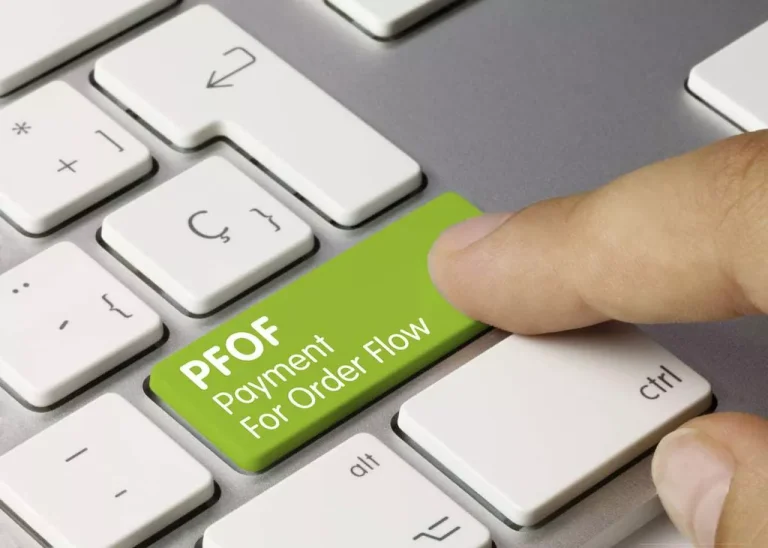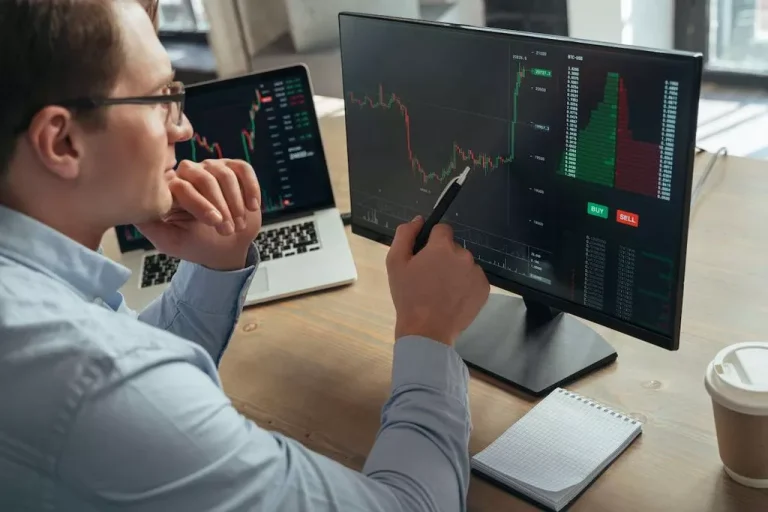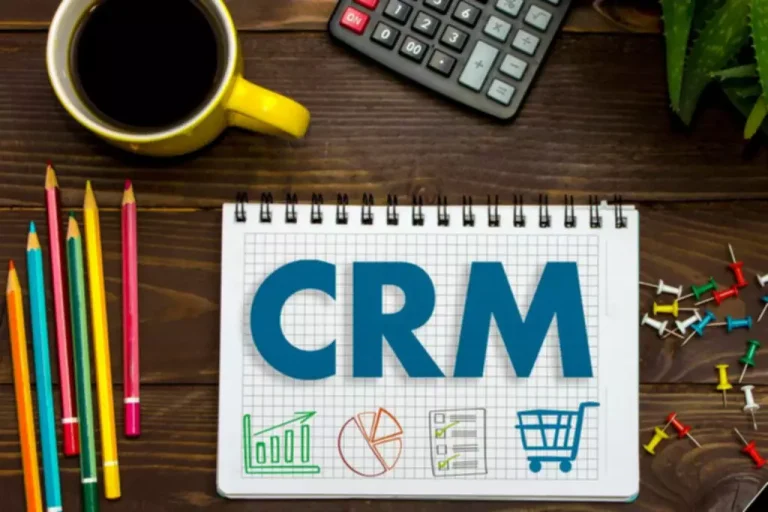Understanding the Difference Between Clearing Firms and Custodians
Content
Clearing and self clearing broker dealer settlement help to reduce risks and ensure the timely completion of trades, which is essential for maintaining market stability and investor confidence. On the other hand, we have prime brokers, which offer a bundle of services to clients running complicated financial operations. The typical prime brokerage client is a hedge fund looking to borrow capital and receive other services.
The Importance of Custody in Clearing and Custody Services

Currently, the financial sector is becoming increasingly intricate and cutting-edge, and clearance companies are essential https://www.xcritical.com/ for guaranteeing the fluid progress of fiscal exchanges. Financial institutions must carefully weigh the advantages and disadvantages of self-clearing and outsourcing to a clearing firm before making a decision. While both options have their advantages and disadvantages, many institutions are turning to outsourcing as a way to streamline their operations and reduce costs.

Wrap-Up: Clearing Vs Prime Brokers
But one group that often goes unnoticed - despite playing an essential role in keeping everything running smoothly - Cryptocurrency wallet is clearing firms. To carry customer accounts and clear trades, a broker-dealer needs a high amount of capital and infrastructure. Due to the complexity of clearing, most broker-dealers do not self-clear their trades or hold customer accounts, but a clearing broker is the one form that can clear trades. A broker-dealer is a company that engages in the business of trading securities for its own account or on behalf of its customers.
Self-Clearing vs Outsourcing to a Clearing Firm
A prompt and accurate trade confirmation ensures that the client has received the correct information about the trade, and it helps to prevent any disputes that may arise in the future. Settlement is the final stage in the trading process and involves the transfer of securities and funds between the parties involved. Settlement helps to reduce risks by ensuring that the buyer receives the securities they have purchased and the seller receives the funds they are owed. Settlement also helps to maintain market stability by ensuring that trades are completed in a timely manner and that there is no disruption to the market.
Institutional Broker-Dealer Platforms
One of the more prominent factors that influence a firm’s decision is the control over the trading process, which might not be attainable if they used an external third party. Without relying on an external third party providing these services, communication is streamlined, which allows the firm to provide quick and direct answers to their clients, or vice versa, for greater efficiency. Clearing/carrying broker-dealers subject to the amendments will be determined based on the average of the broker-dealer’s credit balances for the 12 months ending June 30, 2025. An introducing broker helps with this process by introducing their clients to a clearing broker.
- First, general clearing members act as intermediaries between trading parties and central clearinghouses.
- Third, the amendments will require broker-dealers to check a box to indicate whether they are subject to the 2% debit reduction or the 3% debit reduction.
- This process lasts for several working days and is called T+2 (the date when the deal was concluded + 2 additional days).
- The spread represents the potential profit a market maker can make from their business, and it is meant to compensate them for the risk they take when engaging in this business.
- From banks and investment firms to stock exchanges and regulatory bodies, it can be hard to keep track of who's who and what they do.
The clearing process involves the submission of trades to the clearing firm, which then verifies that both parties have fulfilled their obligations. In this article, we will explore the world of clearing firms and their role in trading. All of this may sound somewhat dry or technical - but make no mistake, without clearing firms doing their job behind the scenes, our entire financial system would be at risk.
Both options cater to distinct business approaches and client needs, so aligning your choice with your professional goals is essential. While both RIA and broker-dealer models are heavily regulated, their compliance obligations differ significantly based on their business models and regulatory oversight. Both RIAs and broker-dealers must navigate distinct licensing and registration processes to operate legally and meet regulatory standards. While RIAs focus on advisory qualifications and disclosure filings, broker-dealers must adhere to stringent FINRA and SEC requirements.

Broker-dealers should carefully consider their options when choosing a clearing house, taking into account factors such as cost, transparency, liquidity, customization, and confidentiality. The best option for clearing and settlement depends on the size and complexity of the broker-dealer's operations. Self-clearing may be appropriate for smaller firms with simpler operations, while introducing brokers and clearing firms may be better suited for larger firms with more complex operations. It is important for broker-dealers to carefully consider their options and choose the option that best meets their needs.
This gives the firm the ability to keep everything in-house and eliminates the element of having to communicate with an outside third party. The Securities and Exchange Commission (SEC) has implemented rules to ensure that clearing firms have adequate risk management systems in place to protect investors' interests. The SEC is the primary regulatory body responsible for overseeing clearing and settlement operations in the United States.
In essence, clearing firms act as the middleman between buyers and sellers, ensuring that transactions are executed correctly. The role of the largest clearing firms in maintaining custody is critical to the financial industry's smooth functioning. As a broker-dealer, it's important to consider partnering with a reputable clearing firm to improve your risk management and operational efficiency. Increased capital requirements and other regulations have had an impact on the ability of clearing firms to provide their services. Clearing firms play a crucial role in the financial industry by providing clearing and custody services to a broker dealer or RIA. To mitigate these risks, regulatory bodies such as the Securities and Exchange Commission (SEC) have established rules governing the operations of clearing firms.
The SEC reasoned that since a daily computation should reduce mismatches, a smaller cushion is warranted. Prime brokerage firms offer a range of services, including clearing and settlement of securities and other assets, risk management, and financing. Clearing firms are essential to the financial markets, providing services like trade settlement, margin financing, and risk management. Clearing and settlement processes also help to provide liquidity in the financial markets. By ensuring that trades are settled quickly and efficiently, these processes help to increase the availability of funds for investment.
The CFTC is another regulatory body that oversees clearing and settlement operations, specifically in the derivatives markets. The CFTC is responsible for ensuring that clearinghouses and other market participants comply with regulations that govern the trading and settlement of futures and options contracts. Clearing and settlement also involve liquidity risks, which arise from the inability to access sufficient funds or assets to settle trades. Liquidity risks can result in financial losses, operational disruptions, and reputational damage.
These relationships can pose potential risks, such as conflicts of interest or systemic implications for the broader financial system if a clearing firm were to fail or experience financial difficulties. Maintaining custody refers to the safekeeping of client assets such as securities, cash, and other financial instruments. Despite these challenges, successful partnerships between clearing firms and broker-dealers continue to exist. However, it's important to note that regulatory changes have made it more difficult for smaller clearing firms to compete with larger ones. A. Self-Clearing - Broker-dealers can choose to clear and settle trades themselves, without the help of a clearinghouse. This option provides greater control over the process but requires significant resources and expertise.
Is Crypto A Security? Understanding The Legal Panorama Cryptocurrency News & Buying And Selling Ideas
Conversely, the Commodity Exchange Act categorizes cryptocurrencies such as Stockbroker Bitcoin and Ether as commodities. This classification empowers the CFTC with regulatory authority over derivatives transactions of those crypto property. However, the CFTC’s jurisdiction does not lengthen to thorough transaction oversight, focusing primarily on policing fraudulent and manipulative activities.
Crypto Classification: Security Vs Commodity
For example, the creators of a cryptocurrency that is considered a commodity don't want to fulfill the in depth disclosure and registration necessities that might apply if the cryptocurrency were categorised as a safety. Commodities, unlike securities, are tangible uncooked supplies that are Commodity vs Security Why It Matters For Crypto mined, drilled, or cultivated. These include metals like gold and silver, power assets corresponding to oil and fuel, and agricultural merchandise like wheat and cotton. These bodily assets, primarily regulated by the Commodity Futures Trading Commission (CFTC), function the spine of worldwide commerce and economic system.
What Is The Difference Between A Commodity And A Cryptocurrency?
Commodities can function the underlying asset for derivatives corresponding to futures and options. Futures establish an obligation to purchase or promote a commodity at a set worth and date in the future, while choices provide holders with the right (but not the obligation) to buy or sell the commodity. A safety is a fungible and tradable financial instrument issued by corporations and governments to lift capital. In basic, securities characterize equity (the rights to an possession share in an enterprise), debt (loans that are repaid in periodic installments), or a hybrid of equity and debt. SEC attorneys have indicated that staffers might view crypto tokens such as Voyager’s VGX as securities, even where the agency hasn’t reached a formal view.

Is Crypto A Security Or Commodity? The Debate Continues Into 2024
- Crypto enthusiasts argue that one cannot classify these assets as securities because no central coordinated group is in charge.
- The SEC’s interpretation of what constitutes a security is crucial as a outcome of it determines the scope of its regulatory authority.
- Cryptocurrencies usually serve an analogous economic perform to that of commodities, appearing as a retailer of value.
- There are considerations about increased prices for buyers and regulation, however this could spell good for crypto in the lengthy run.
However, whereas being categorized as safety may subject cryptocurrencies to larger oversight, it may additionally open the market to an even bigger pool of buyers after passing regulatory hurdles. That’s because individual or retail traders are inclined to have greater access to the publicly traded securities like stocks or ETFs. Commodities, on the opposite hand, are bodily items which might be traded on exchanges in wholesale portions. These can include agricultural merchandise like corn and wheat, as well as valuable metals like gold and silver. The classification of cryptocurrencies as securities or commodities can considerably impression their regulatory therapy, investor notion, and general market habits.
Like commodities, they're interchangeable – each token or ‘coin’ is equivalent. Commodities are regulated by the Commodity Futures Trading Commission (CFTC). Securities are subject to more extensive rules geared toward defending buyers from fraudulent activities and ensuring transparency.

Some or all cryptos are commodities, relying on which regulatory authority you ask. The classification is dependent upon the circumstances the cryptocurrency is issued beneath, how it's made available to buyers, how it trades, and how investors and traders treat it. As lengthy as there may be demand from traders for crypto commodities, they are likely to continue being traded on commodity and crypto exchanges. Now, if it’s a token as an alternative of a coin, then the primary query — is its community functioning?
This is just like how preliminary public choices, or IPOs, or capital-raising events for corporations and issue stocks. The elementary distinction between a commodity and a security hinges on what's being bought and sold. Commodities are fundamental goods that can be traded or exchanged, whereas securities contain taking an ownership stake or offering credit score to a standard enterprise with the hopes of earning a revenue.
They additionally handle illicit finance risks that might doubtlessly arise from the misuse of cryptocurrencies. In some circumstances, cryptocurrencies can look lots like securities, like when they’re issued like inventory in “initial coin choices.” These are capital-raising processes for blockchain or crypto-related companies. Derivatives are securities whose prices are derived from one other underlying asset. A safety is broadly outlined as a monetary instrument that has value and may be traded. In on a regular basis usage, it’s a word that encompasses shares, bonds, exchange-traded funds (ETFs) as properly as other investments.
Companies that concern securities like shares and bonds must present buyers with detailed, transparent data, while commodities are subject to much less stringent reporting necessities. Anything that falls into this category is most likely going to be classified as a safety and it’s going to have to observe securities laws. The SEC’s interpretation of what constitutes a security is important because it determines the scope of its regulatory authority.
The former CFTC chairman explains that all crypto is actually laptop code. As a outcome, when determining when and whether a cryptocurrency is a commodity, the government must examine what function they serve. If cryptocurrency is defined as a commodity, the restrictions are typically lots looser, giving buyers extra freedom, and permitting entrepreneurs to outline the system via extra innovation – but with more danger.
The potential consequence of classifying cryptocurrencies as securities may contribute to greater legitimacy throughout the trade. On the other hand, considering alternate options like categorising cryptocurrencies as commodities could present its personal dangers, posing elevated challenges for investors. A safety is a financial instrument with financial worth usually sold and bought on a stock trade. Moreover, buyers in securities anticipate profits from these investments over a time period. Classifying crypto as a safety offers investor protections but additionally topics the whole asset class to stricter regulations, affecting everything from registration requirements for exchanges to investor data. This could have a significant impression on the crypto market and its individuals.
Excluding Bitcoin and Ethereum, which the SEC usually views as commodities, the company considers most different cryptocurrencies as securities. For more assist evaluating the regulatory risk of your cryptoasset(s), get in contact with our skilled group right here at Blockchain ConsultUs. In the case of it being a token as an alternative of a coin, ask yourself, is its community functioning? If the project is decentralised, it might be argued that it’s not a common enterprise – due to this fact, it’s much less dangerous.
SoFi doesn't assure or endorse the merchandise, information or recommendations provided in any third party website. However, there are commodity-backed stablecoins, which are cryptocurrencies which might be collateralized by reserves of bodily goods. A quick dive into the evolutionary history of cryptocurrency platforms is warranted to know the idea of crypto commodities. The report said ransomware and darknet market gross sales stay Bitcoin-dominated, while scamming or laundering of stolen funds spans throughout all asset types. SINGAPORE - The worth of cryptocurrency that was sent to unlawful digital addresses in 2024 is more probably to surpass 2023 numbers, a Chainalysis report mentioned. The Commodity Futures Trading Supervisory Agency (Bappebti) outlined six licensed digital bodily gold traders in Indonesia.
Start your own high-profit forex brokerage in just a few days or scale your existing business with the best-in-class forex software XCritical https://www.xcritical.in/. Get the perfect Turnkey Forex Solutions that will provide your business with efficiency, stability, and maximum profit.
